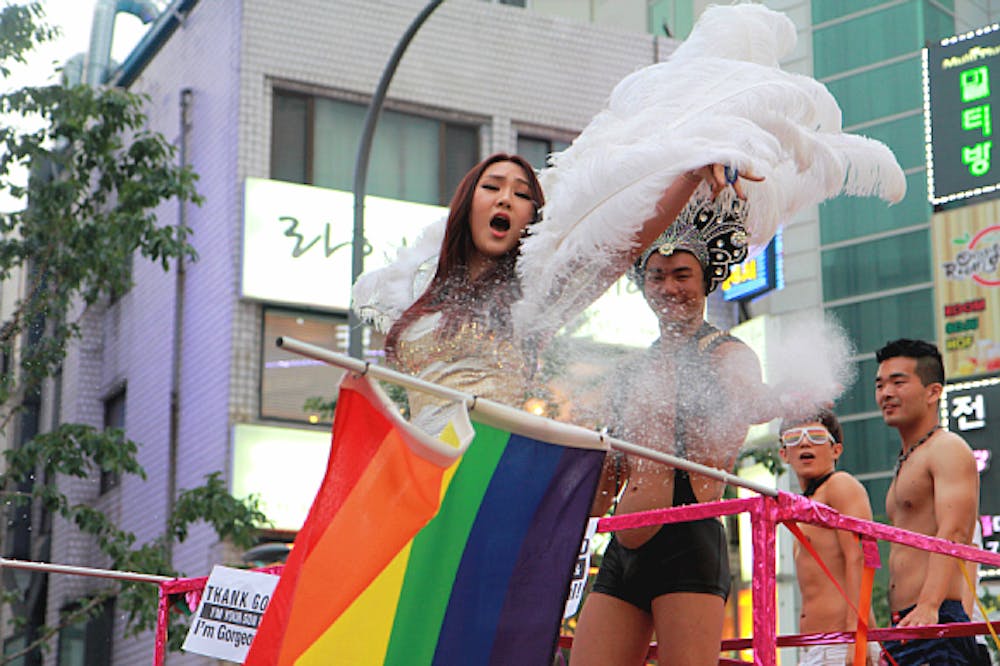Last week’s midterm elections brought a series of historical firsts, such as the first Native-American congresswoman, the first Muslim congresswoman and the first openly gay governor, to name a few. However, one “first” candidate that we’ve left out of the spotlight is Young Kim, who may be the first Korean-American woman elected to Congress.
If elected, Kim, a Republican, will represent California’s 39th congressional district, which includes pieces of Orange, Los Angeles and San Bernardino counties. Perhaps her lack of national media coverage is due to the race between Democrat Harley Rouda and the controversial incumbent Republican Dana Rohrabacher in the neighboring district. But the Korean-American and larger Asian-American community have been paying attention.
After her projected win, I noticed relatively little enthusiasm from my Asian-American peers. They’re wary that Kim’s stances may reflect poorly on the Asian-American community, because we’ve typically remained an “invisible minority” in the political realm. While the views of your average white congressman may not reflect those of the white male demographic, it’s not so with Kim. Her election begs the larger question of Asian-American representation in politics and whether she’s reflective of a diverse group.
Kim, a traditional Republican, is an anomaly in Trump’s GOP. On the campaign trail, Kim stressed her immigrant story. Most notably, she breaks from her party on Deferred Action for Childhood Deferrals (DACA) and chain migration, which has contributed significantly to migration from Asia. This is likely what earned her narrow victory, given that Hispanics and Asians make up two-thirds of her district and immigrants make up one-third.
However, Kim is conservative on other issues. As an assemblywoman, she has a record of voting against LGBTQ bills. She is against same-sex marriage and students choosing bathrooms according to their gender identity. Additionally, she has been outspoken against affirmative action in college admissions process. To young, liberal Asian Americans like myself, these stances are disturbing.
While it’s understandable for any member of a minority to want to celebrate politicians who share the same background, blindly supporting them can be dangerous.
There’s a tendency for liberals to blanket all minorities together and assume that they’re free of the prejudices of their white counterparts, which I find problematic. While minorities overall tend to vote Democratic, the proportion of those with conservative leanings can be surprising. This explains why Cuban Americans are a solid voting bloc for Florida Republicans and why a district as diverse as Orange County has traditionally been a Republican stronghold.
In terms of socioeconomic status and political affiliation, there is significant diversity within minority groups. This is especially true in the case of Asian Americans in southern California. We’re the most economically divided and unequal racial/ethnic group in the U.S., with Southeast Asians worse off compared to their East Asian and Indian counterparts. To say that Kim represents southern California’s Asian-American population, let alone all Asian Americans, would be a stretch to say the least.
Kim is representative of an older generation of Asian Americans, which comes with its own set of problems. I’m not demonizing her, to be clear. But it’s important for Asian-American youth like myself to avoid the insular thinking that can be prevalent in our communities.
I’m concerned that Kim will become another “token minority” for the effort to ignore and perpetuate institutional racism. Her opposition to affirmative action, which the majority of Asian Americans support, indicates that she will likely be another piece for the model minority myth. In the battle over higher education, the myth has pitted Asians against Latinos and blacks, and it has distracted from larger issues of educational inequality.
If elected, there may be a few things to celebrate about Kim’s win: proof that Korean women can win in national elections, a slightly more inclusive GOP and a “sensible Republican” in Trump’s party. But those reasons aren’t enough for us, especially those of us who are younger and progressive, to embrace her.
There are other lawmakers of Asian descent that are more in-tune with younger generations of Asian Americans. Take Senator Mazie Hirono (D-HI) for example. She was the first Asian-American woman elected to the Senate and the only Asian American in the Senate from 2013 to 2017, until Tammy Duckworth (D-IL) and Kamala Harris (D-CA) joined her ranks. Meanwhile, on the opposite side of the country, Andy Kim (D-NJ) won an equally competitive House race last week.
Asians make up the fastest growing racial group in the U.S. As such, we can have growing political clout, especially in coastal states like California, where Republicans and Democrats alike jockeyed for Asian votes in competitive races last week. For Asian-American youth, it’s up to us to become politically involved, do our research on the issues and support those who represent our values — not just those who look like us.
Natalie Wu is a junior majoring in Environmental Science and International Studies from San Diego, Calif.

















